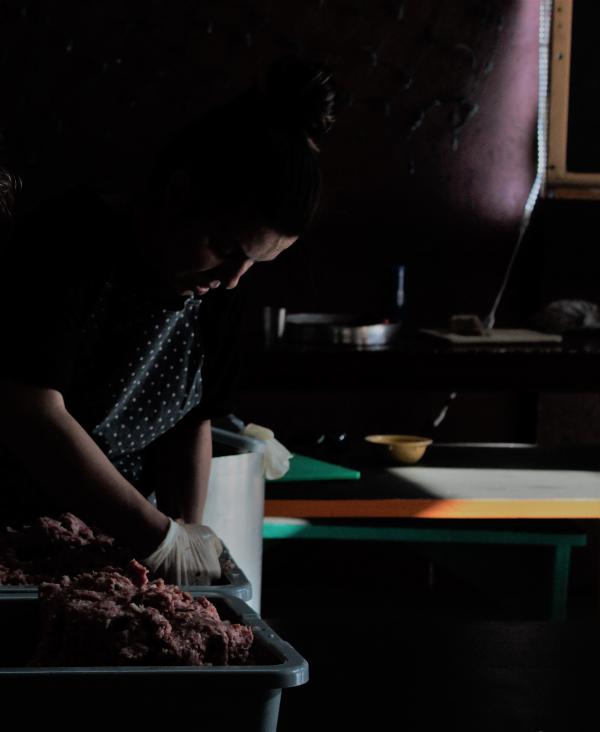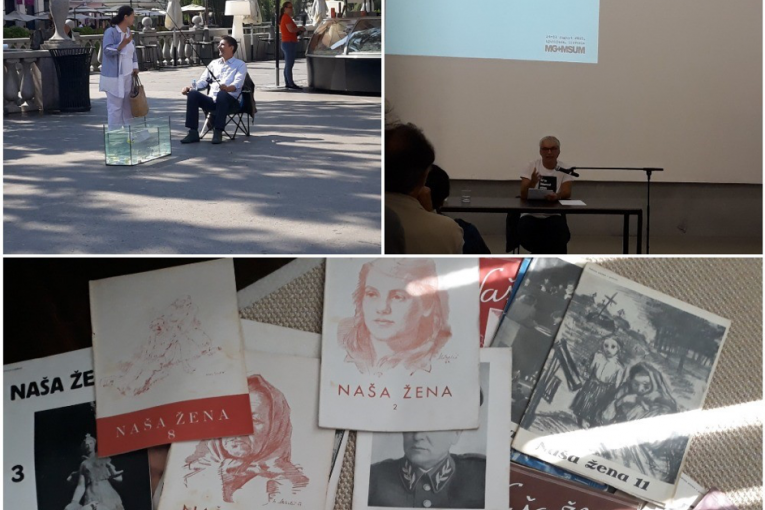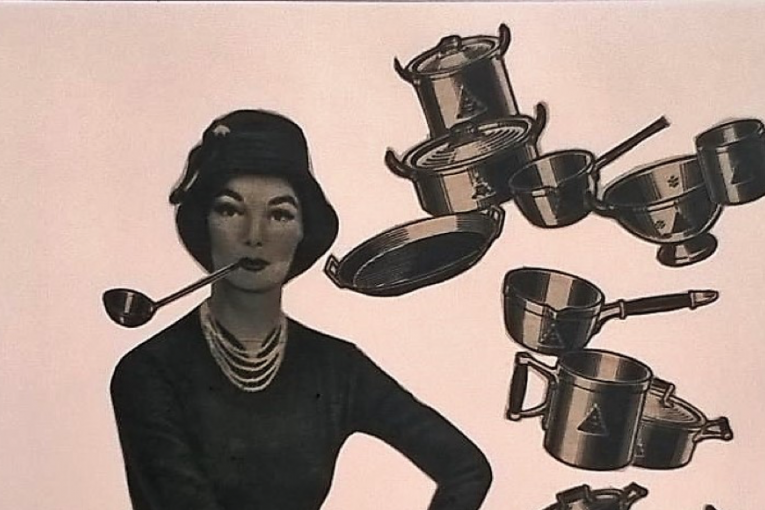
Andreja DUGANDŽIĆ
Andreja Dugandžić is a multi-media artist, researcher and a cultural worker from Sarajevo. She studied social sciences at the University College Utrecht and in 2004 completed her MA degree in Democracy and Human Rights in SEE at the University of Sarajevo and University of Bologna. She works at the Association for Culture and Art CRVENA where she is responsible for the program “What has our struggle given us”, an online Archive of the Antifascist Front of the Women of Bosnia and Herzegovina and Yugoslavia (www.afzarhiv.org). She is also one of the editors of the volume "Lost revolution: AFŽ between myth and forgetfulness". For over 15 years, Andreja has been actively involved in promoting women’s rights and feminism.
In her art, she works at the intersection of performance, poetry, sound, and collage. Exploring the mundane and daily domestic life, she is concerned with the wider socio–cultural and gendered dimensions of food, cooking, household labour and household economics. She has worked with numerous artists and curators, and has performed and exhibited throughout the region, Europe and beyond (City of women – Ljubljana, Bone - Performance Art Festival – Bern, 54th October Salon – Belgrade, Voxfeminae festival-Zagreb, Tabor film festival, Doing identity-Munich, Living Archive: Dada Polis -Stockholm, Viva!art action-Montreal, etc.)
She is one of the members of the legendary band STARKE (2007-2009), and part of the Black Water and her Daughter duo. Her poetry was published and translated in many literary magazines and journals, such as Profemina, Pobocza, Beton, LUD Literatura Journal, Kolaps, the Split mind, etc.



